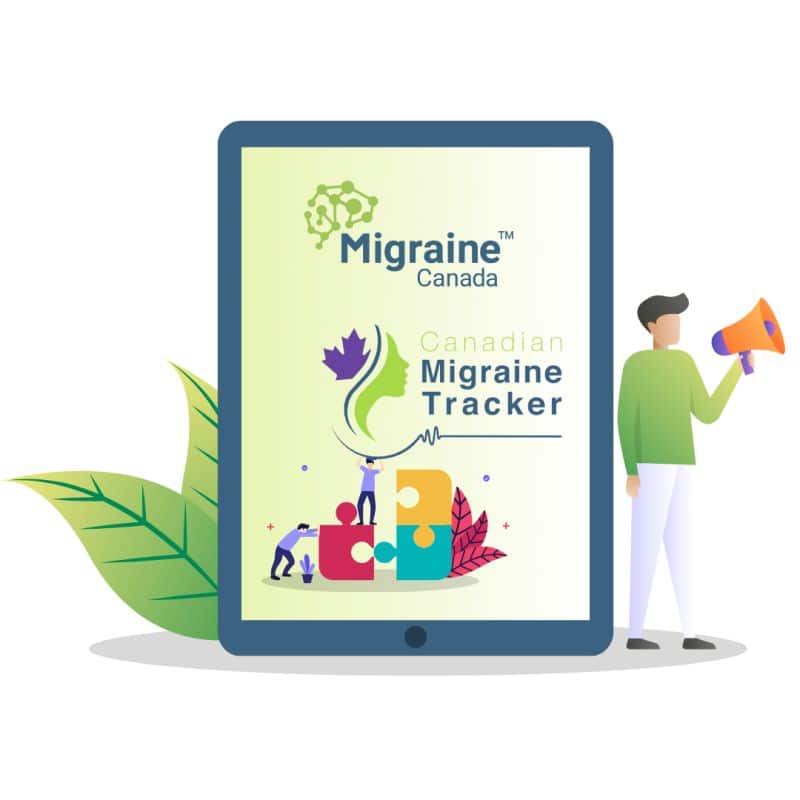Understanding the access and coverage for CGRP monoclonal antibodies (MABs) is essential for managing the costs associated with these medications. Below is an overview of the current landscape, including insurance coverage, patient support programs, and considerations for accessing CGRP MABs.
Disclaimer: This information is provided as a general overview of a complex topic. It can be hard to know which medications you would have to pay for yourself. There might also be changes in Patient Support Programs and this information may become outdated. Ask your insurance or Patient Support Program for any specific question.
Bringing this article to your doctor may help facilitate your conversation about CGRP MABs and their coverage options.
What is the cost of CGRP antibodies?
The cost of these medications are similar. To pay out of pocket will cost several hundred dollars each month. The price may vary depending on the province you are in and also the pharmacy dispensing fees. It is recommended you shop around for cost from a couple different pharmacy chains depending where you live (ie. Rexall, Shopper’s, Costco, etc)
Are CGRP antibodies covered by public insurance?
Most provinces are including the CGRP MABs on their public formularies. We have included a table below that shows where they are covered.
Abbreviations: SA = Special Authorization (also called “limited use” and “exceptional drug status”.) NIHB = Non-Insured Health Benefits provides coverage for registered First Nations and Inuit peoples. NIHB formulary is used by NT and NU.
Are CGRP antibodies covered by private drug plans?
Many insurers have added the majority of CGRPs to their formulary. Depending on the drug plan your employer has chosen, some drug plans will reimburse CGRP antibodies, completely or partially. Talk to your insurance company about coverage on the plan you are enrolled in. Your physician will need to complete some forms.
Can I predict if my drug plan will cover CGRP antibodies?
Many private plans will cover CGRP antibodies if:
- You have tried and failed or not tolerated at least 2 medications for migraine prevention. See our list of preventives.
- You have 8 or more migraine days per month (4 weeks).
Can I pay for a CGRP antibody out-of-pocket?
Like any medication approved in Canada by Health Canada, you can pay out of pocket. Some of the manufacturers have a Patient Support Program (PSP) and will offer financial assistance (typically a 20% rebate) to offset the cost if you have less than 100% insurance coverage.
Some people may decide to pay for the medication themselves if they do not meet the insurance criteria, for example:
- Having less than the 6 days of migraine symptoms required for coverage, but these days are disabling.
- Not having tried 2 preventives.
- Using another specialty migraine medication and insurance will only cover one (ie Botox).
How can I access the pharmaceutical companies’ Patient Support Programs?
- Aimovig GO is the support program from Novartis (Aimovig).
- Lilly Plus is the support program from Eli Lilly (Emgality).
- Teva Support Solutions is the support program from Teva (Ajovy).
- Vyepti Today is the support program from Lundbeck (Vyepti).
You cannot contact the Patient Support Program by yourself. Your healthcare provider is required to prescribe the CGRP antibody for you and complete the enrollment form. You will need to consent to the program and sign the form as well. Providing a list of the preventive medications you have tried before with the doses, how long you tried them, and the result will be very helpful for your prescribing healthcare provider.
Do I have to see a neurologist to get a CGRP antibody prescription?
No. Officially, the doctor or nurse practitioner prescribing the CGRP antibody must be “experienced in the treatment of migraine.” There is NO official requirement for a specialist. Many primary care providers are competent in treating migraine. Of course, not all primary care providers will feel comfortable with these newer medications. This will be a learning curve.
How can I monitor the frequency of my migraine attacks and symptoms?
Knowing how often you have head pain and migraine symptoms is important and in many cases required to be approved for coverage. It is recommended you consider using a headache diary to count days where you feel migraine symptoms. You could use a paper calendar or a smartphone app such as the Canadian Migraine Tracker App.
How long will the antibody be covered by the Patient Support Program?
Usually, a patient support program provides coverage until your private insurance company approves coverage. Then, you will switch from the PSP program to your insurance company. If you have private insurance, you may have to pay part of the price (typically called a co-pay). Some Patient Support Programs will cover the cost that your insurance does not cover (for example, 80% paid by your insurance, 20% paid by the PSP). Changing to your insurance company will require more forms to be completed and signed by your healthcare provider.
Note: It’s important to check with the PSP to ensure you are aware of any changes to the program.
Can I combine CGRP antibodies with Botox?
Medically, yes. However, most insurance companies and provincial drug plans will not cover the combination. They will argue that antibodies have not been tested in combination with Botox. However, there is growing evidence that this combination works well and is necessary for some people.
Here are a few arguments supporting the combination of Botox and CGRP MABs:
- Combining medications with different mechanisms to optimize the treatment of a disease is very common in medicine. We do this all the time for other diseases such as diabetes, hypertension, and depression.
- There are no theoretical risks to combining Botox and CGRP MABs.
- There are scientific arguments and growing evidence that supports this combination. Botox and CGRP do not act on the same nerve fibers and in theory they could work well together. Botox also inhibits the release of other peptides, not only CGRP.
- Some patients with chronic migraine who get a partial benefit from Botox have seen an additional benefit when adding an antibody. Evidence is being collected.
Hopefully, we will have enough research on combination therapy soon that will change the limitations that insurance companies place on treatment. Do not let your insurance company make medical decisions. Hopefully, patients and healthcare providers can unite to improve access to the best options.
If I am doing much better, and do not have 8 days of migraine per month anymore, could the insurance company decide to stop paying for the CGRP antibodies?
The use of “stopping rules” has been seen in the US and some provinces with Botox. From a medical perspective, this does not make sense. For example, if someone takes a pill for blood pressure and the blood pressure improves, that is a success and the medication should be continued. The same applies to epilepsy, diabetes, and thyroid disease. Insurance companies may try to find ways to stop coverage, but the priority should be the quality of life of patients.
Still, if I am doing really well, could it be reasonable to stop the CGRP antibodies? Will I get rebound migraine attacks?
It may be reasonable to go longer between injections if you are doing much better. Since the antibodies will be cleared gradually from your blood, you should not see an immediate recurrence of migraine symptoms. They may come back slowly. If that happens, the medication could be restarted. For more about the length of preventive therapy in migraine, see this post.
For additional information on CGRP antibodies, please refer to these resources:
- Our post on CGRP Monoclonal Antibodies: Summary and Effectiveness
- Our post on CGRP Monoclonal Antibodies (MABs): Risks and Side Effects
- Watch our webinar on CGRP Monoclonal Antibodies Part 1 and Part 2 for an in-depth discussion on how these treatments work and their impact on migraine prevention.
- CGRP-Blocking Antibodies: Q&A With Dr. David Dodick
- What to Know About the New Anti CGRP Migraine Treatment Options
References
- Tepper SJ. History and Review of anti-Calcitonin Gene-Related Peptide (CGRP) Therapies: From Translational Research to Treatment. Headache. 2018;58 Suppl 3:238-75.
- Ailani, J, Blumenfeld, AM. Combination CGRP monoclonal antibody and onabotulinumtoxinA treatment for preventive treatment in chronic migraine. Headache. 2022; 62: 106-108. doi:10.1111/head.14244
Post #914



